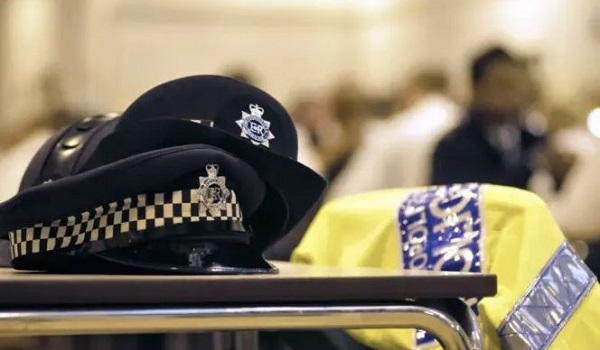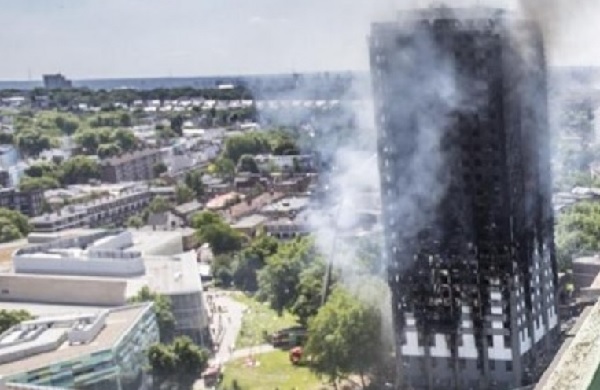Government reverses Theresa May’s Stop and Search reforms
The Home Office has relaxed the rules on the use of Section 60 of the Criminal Justice and Public Order Act to allow officers “to crack down on violent crime”.
On Sunday (August 11), Home Secretary Priti Patel issued changes to the Best Use of Stop and Search Scheme to reduce the level of authorisation needed to impose Section 60 orders to the rank of inspector from senior officer.
And authorising officers will no longer need to believe there ‘will’ be violence. From today they will only need to believe there ‘may’ be violence.
As part of the same measures, Ms Patel raised the initial period a Section 60 order can be in force from 15 hours to 24 and the overall time from 39 hours to 48.
The Labour Party said the “draconian” measures were an attempt to “appear tough”.
Ms Patel is reversing the limits imposed on the use of Stop and Search by Theresa May when Home Secretary. In 2014, Mrs May introduced the Best Use of Stop and Search Scheme, which restricted the use of the powers and to which all chief constables signed up.
The new Home Secretary said the extension of a seven-force pilot to test the changes to the rest of England and Wales will help officers deal with the significant rise in knife crime since the limits were imposed.
Ms Patel said: “We are experiencing a knife crime epidemic and I am determined to put a stop to it.
“Police chiefs are clear – Stop and Search is a vital tool in combating the scourge of serious violence and keeping people safe.
“Today I am giving them my full support and more police authority to approve stop and search to halt this terrible crime in its tracks.”
Ms Patel said the support of chief officers for the powers and the 7,000 arrests for offensive weapons and 900 arrests for firearms that were made following a stop and search were sufficient evidence to warrant the changes.
Data on the use of stop and search will still be recorded to monitor its fair and proper use, she added.
And the College of Policing is currently consulting on new guidance for forces on community engagement around stop and search.
However, Shadow Home Secretary Diane Abbott said the Conservative Party has learnt nothing from history and warned that the extension of Stop and Search powers in the summer could lead to unrest, not violence reduction.
“This draconian approach shows that Boris Johnson’s government has no real plans to invest in policing or a public health approach to tackling violent crime,” Ms Abbott said.
“They have opted to appear tough instead of dealing with the root causes of crime.
“Evidence based Stop and Search will always be a vital tool in preventing crime. But random stops have only poisoned police community relations.”
National Police Chiefs’ Council Lead for Stop and Search, Deputy Chief Constable Adrian Hanstock, said: “The authority to stop and search people in appropriate circumstances is a necessary power that allows police officers to tackle violence in our communities and prevent people from becoming victims of crime.
“Every day officers across the country seize horrifying weapons and are preventing further injuries and deaths by using their search powers.
“Section 60 powers to stop and search anyone within a designated area can be extremely effective when there have been violent incidents and police commanders believe there is a high risk of further violence occurring.
“The extension of this pilot to all 43 police forces, and British Transport Police across the rail network, will help to reduce bureaucracy and allow officers to use Section 60 controls much faster when it is clear it is in the public interest to do so.”
Police and crime commissioners (PCCs) welcomed the measures.
David Munro, the Association of Police and Crime Commissioners Lead on Equality, Diversity and Human Rights (EDHR) and the PCC for Surrey, said: “The overall regulation of stop and search by individual police forces is much more thorough than it ever was and so it is right that senior police officers are able to use their wide experience and judgement to examine critically all their powers and duties to tackle violence and keep communities safe. I also welcome theextension to all 43 police forces, including British Transport Police, which will assist in reducing bureaucracy and allow officers to use Section 60 controls much faster when it is clear it is in the public interest to do so.
“However, statistically, those who identify as BME are still likely to be stopped and searched more than those who identify as white. We must continue to work together to make sure that we don’t return to the practices of a decade ago, when stop and search was used with much greater frequency than it is now, was poorly regulated and used much more indiscriminately. That is why I am pleased that police forces will still be required to record data around stop and search and monitor its fair and proper use and that the College of Policing is consulting on new guidance for forces on community engagement around stop and search.”
The Government also announced plans to shortly publish draft guidance on measures in the Offensive Weapons Act that relate to the sale and delivery of corrosive products and knives, and Knife Crime Prevention Orders (KCPOs), aimed at preventing knives and dangerous acids being sold to under-18s.
KCPOs are civil orders that can be imposed by courts on any person aged 12 or over to prevent vulnerable individuals from becoming involved in knife crime. They enable courts to impose conditions, such as curfews or requirements to attend educational courses.
Ms Patel added: “Our Offensive Weapons Act will give police extra powers to take dangerous weapons out of criminals’ hands, while Knife Crime Prevention Orders will act as a deterrent to those at risk of becoming involved in knife crime.”







